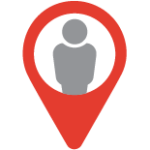Develop localized comprehensive resource and referral networks that meet community-specific needs to drive quality referrals, coordinate care, and ease navigation for families.
2.1.1 Create the opportunity for providers and families to access information about the available resources in their community. This could include a community-specific and/or statewide centralized access point and resource guide.


2.1.2 Establish a network of providers at the community level who refer families to services, communicate capacity and referral outcomes, and strengthen overall community partnerships and collaboration.


2.1.3 Use evidence-based, standardized screenings such as the Ages & Stages Questionnaires (ASQ) and the Edinburgh Postnatal Depression Scale to identify need and connect families to the right services as early as possible.



2.1.4 Offer families with newborns a developmental screening passport to track development and support communication between them and providers.



2.1.5 Emphasize care coordination that identifies and aligns with family needs and preferences across providers and settings.

1-800-CHILDREN operates a statewide resource directory and live call-line 24/7. With dedicated outreach and marketing support, awareness of the call-line and online resource directory has increased dramatically and efforts continue to ensure this resource reaches families in need.
IRIS, a community network tool with 15 established networks across Kansas covering 22 counties, is expanding across the state to further guide families in need of support. In 2022, IRIS launched the Wildcat Region with nearly 50 participating partner networks in Geary, Pottawatomie, and Riley counties, as well as a collaborative cross-state network in the Kansas City region with 105 participating partner organizations.
The Child Care Systems Improvement Team (CCSIT) is exploring strategies to improve the user experience for prospective and current licensed child care providers and partners. The CCSIT is implementing 14 recommendations established in early 2022. Examples include an online toolkit to help providers and communities start and build upon child care services, information on high-level regulatory topics, and a public awareness campaign focused on the importance of licensed child care.
Enhancing peer support networks for child care providers is a focus of both Links to Quality and the Child Care Health Consultant network (CCHC). CCHCs offer expanded technical assistance to child care providers for increasing health, safety, and wellness in their settings. The CCHCs supported nearly 500 providers with 2,383 different engagements and touch points throughout the past year.
Locally, organizations are using PDG Quality Subgrants to develop or expand their own custom solutions, to improve quality of care and education for Kansas children by increasing the availability of high-quality child care for target populations, including rural communities; enhancing systems that connect families to services, and supporting Kindergarten readiness efforts.
A significant bright spot for Kansas is the statewide enterprise system for the Ages and Stages Questionnaire (ASQ). This allows service providers to more easily access the ASQ screening tool, which is critical for connecting children to the right support services early in life. Emphasis is now on training providers to administer and use the ASQ, identifying appropriate referral workflow, and helping communities strengthen referral partnerships. 139 Part C Enterprise accounts have been created since the launch in August 2021, with a total of 964 programs participating across Part C and KSDE accounts.
Holistic Care Coordination, an approach to coordinating services, care, and support in a “whole-person” manner, is another bright spot for Kansas with two impactful KDHE programs. Bridges, which helps families transition smoothly from Part C to Part B programs, is partnering with Infant Toddler Services to ensure families are aware of and participate in this service. The Pediatric Pilot program connects a Care Coordinator with pediatric offices to offer a two-generation approach to referrals, improving the well-being of both mother and baby. KDHE also developed a Holistic Care Coordination Toolkit, provided five “COVID Support through Care Coordination” sessions in conjunction with the Kansas Chapter of the American Academy of Pediatrics using Project ECHO (Extension for Community Healthcare Outcomes), and supported coordinators in 5 communities.
The Home Visiting Working Group, consisting of representatives of programs recognized as part of the early childhood mixed delivery system, including Parents as Teachers, Healthy Families, MIECHV (Maternal, Infant, and Early Childhood Home Visiting), Early Head Start, Head Start, and Universal Home Visiting, is focused on redesigning the Universal Home Vising (UHV) model. In conjunction with a marketing firm, they launched a campaign to create awareness of home visiting in Kansas with a goal of connecting more families to programs. The group has also updated UHV programs in 1-800-Children, in IRIS networks, and is finalizing an MCH Overview Guidance document for programs interested in developing UHV.
